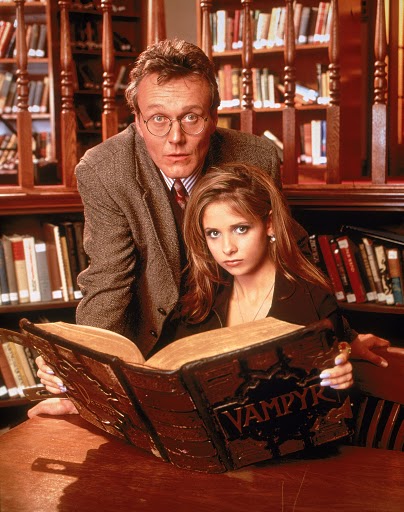Timeline

This timeline shows key texts (literary, cinematic, and TV) and events in the evolution of cultural representations of the vampire. We can’t include everything (adaptations of Dracula alone are countless), but we have chosen items that are the most significant or that we consider particularly interesting. Click on the left and right arrows to move through the history. (We will be continually updating this and are open to suggestions.)
1702
Joseph Pitton de Tournefort, Voyage to the Levant
1732
Anon, 'Political Vampires', in The Craftsman
1735?-1742
Jean-Baptiste de Boyer, Marquis d'Argens, The Jewish Spy
1746
Antoine Augustin Calmet, Dissertations on the Apparitions of Angels, of Demons and of Spirits, and on Revenants or Vampires of Hungary, of Bohemia, of Moravia and of Silesia
1762
Jean-Jacques Rousseau, 'Letter to Christophe de Beaumont'
1764
Francois-Marie Arouet de Voltaire, 'Vampires', in Philosophical Dictionary
1773
Gottfried August Bürger, Leonore
1774
1786
John Farrar, 'Of popular illusions, and particularly of medical demonology'
1797
1797-1800
Samuel Taylor Coleridge, Christabel
1800
Ernst Raupach, 'Wake Not the Dead'
1801
Robert Southey, Thalaba the Destroyer
1805
Count Jan Potocki, The Manuscript Found in Saragossa
1810
John Stagg, The Vampire
1811
Jean-Baptiste Benoît Eyriès, Fantasmagoriana. Translations from German of stories from Johann August Apel and Friedrich Laun's Gespensterbuch (1811), and by Johann Karl August Musäus and Heinrich Clauren
1813
Lord George Gordan Byron, The Giaour
1816
- Lady Caroline Lamb, Glenarvon
- Ghost story telling at the Villa Diodata, with Mary Godwin, Percy Shelley, Lord Byron, John Polidori, and Claire Clairmont.
1819
- John Polidori, The Vampyre
- Uriah Dereck D'Arcy,The Black Vampyre; A Legend of St Domingo
1820
- John Keats, Lamia
- Cyprien Bérard, Lord Ruthwen, ou Les Vampires
- James Planché, The Vampire, or The Bride of the Isles
- Charles Nodier, Le Vampire
1821
- E. T. A. Hoffman, 'Vampirismus'
- Eugène Scribe, Le Vampire
1835
Nikolai Gogol, Viy
1838
Edgar Allan Poe, 'Ligeia'
1843
Théophile Gautier, 'La morte amoureuse'
1845-1847
James Malcolm Rymer, Varney the Vampire
1847
Charlotte Brontë. Jane Eyre
1850
The Phantom World, trans. by Rev. Henry Christmas of Calmet
1847
Emily Brontë, Wuthering Heights
1851
Alexandre Duams, Le Vampire
1852
Dion Boucicault, The Vampire
1857
Charles Baudelaire, Les fleurs du mal
1865
Jules Dornay, Douglas le Vampire
1867
William Gilbert, 'The Last Lords of Gardonal'
1870
Sir Richard Burton, Vikram the Vampire
1872
Sheridan Le Fanu, Carmilla
1887
Guy de Maupassant, 'Le Horla'
1890
- Mary Cholmondeley, 'Let Loose'
- Emily Gerard, The Land Beyond the Forest: Facts, Figures, and Fancies from Transylvania
1891
Oscar Wilde, The Picture of Dorian Gray
1894
- Eric, Count Stenbock, 'A True Story of a Vampire'
- Aleksei Tolstoy. 'The Family of Vourdalak'
- Sir Arthur Conan Doyle, The Parasite
- Edvard Munch, The Vampire
1896
George Méliès, The Haunted Castle
1897
- Bram Stoker, Dracula
- Mary Elizabeth Braddon, 'The Good Lady Ducayne'
- Frances Marryat, The Blood of the Vampire
- Phillip Burne-Jones, The Vampire (painting)
- Rudyard Kipling, 'The Vampire'
1900
F. G. Loring, 'The Tomb of Sarah'
1900
Hume Nisbet, 'The Vampire Maid'
1902
Mary E. Wilkins, 'Luella Miller'
1904
M. R. James, 'Count Magnus'
1911
F. Marion Crawford, 'For the Blood is the Life'
1912
E. F. Benson, 'The Room in the Tower'
1922
F. W. Murnau. Nosferatu
Chronology of Primary Texts
This is a table of key primary vampire texts. You can search for authors, titles, key words, and so on. You can also sort the columns by clicking on the arrows in the headings. Drag the cursor sideways or use the arrow buttons or scroll bar to reveal the hidden columns on the left and click on ‘Next’ at the bottom of the table to see the next 10 entries.
